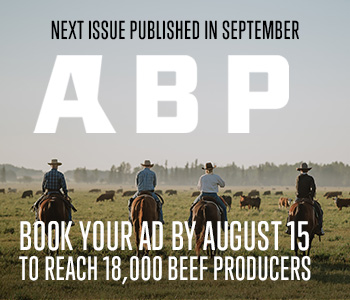AB Direct - Steers
Rail: 495.00-500.00 del
AB Direct - Heifers
Rail: 495.00-500.00 del
US Trade- Steers
Rail: ---
US Trade - Heifers
Rail: ---
Canadian Dollar
0.12
Pasture recovery after early season fires
If you’ve been impacted by Alberta’s recent wildfires, you may be wondering how to help your pastures recover. While there is more research on pasture recovery after a late season fire, there are still some guidelines to consider in light of early season fires.
Grasslands evolved with fire, and in most cases their roots won’t be seriously injured during a fire, allowing them to regrow quickly.
“Grasses are extremely resilient to fire, and fire is generally a rejuvenating process in grasslands,” says Eric Lamb, professor of plant ecology and biostatistics at the University of Saskatchewan.
Because fire is commonly used to rejuvenate native prairie for rotational grazing, similar principles can apply here.
“Normally the cattle would be allowed on to the greening-up burns as a way to give rest to unburned parts of the pastures,” says Lamb. However, this isn’t an option if an operation’s entire land base was burned.
Given the timing of these wildfires, the earliest emerging grasses in burned pastures will likely see something of a setback. As a result, impacted producers should expect some productivity losses in these pastures this year.
“Future year production losses will depend on whether litter layers are allowed a chance to recover this year,” he says.
“I would also keep in mind that this could be beneficial to producers dealing with native pastures invaded by brome and bluegrass, as it will give the later-emerging native grasses an advantage.”
Lamb also says pastures aren’t likely to be harmed by light grazing after a fire. “The emerging grasses will be unusually nutritious, and cattle are likely to seek them out.”
“(The) key for long-term recovery is ensuring that there is sufficient carryover left this year to ensure litter layer recovery.”
Research on post-fire recovery rates on native grasslands is currently ongoing at the University of Saskatchewan, and results are expected in late 2023.


